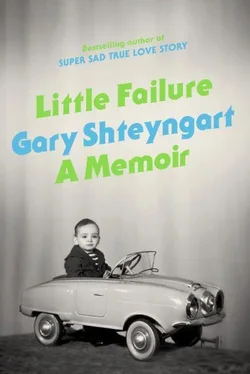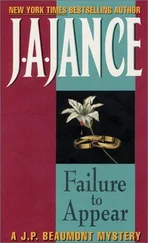ZORK I: The Great Underground Empire
Copyright (c) 1981, 1982, 1983 Infocom, Inc. All rights reserved.
ZORK is a registered trademark of Infocom, Inc.
Revision 88 / Serial number 840726
West of House
You are standing in an open field west of a white house, with a boarded front door.
There is a small mailbox here
>
In the dim light of Jonathan’s computer room his two five-and-one-quarter-inch Apple disk drives are twirling with anticipation. The > represents the so-called status line, upon which the player would give directions. For example:
>W
would mean the player wanted to go west. Or
>Open mailbox
would be another self-evident command. And so, without the intrusion of the graphics or sounds found in other video games, Jonathan and I journey into the Great Underground Empire, land of dungeons and treasure, trolls and grues and Elvish swords, and the dreaded Flood Control Dam #3. After hours of > we pause play and stagger onto the brightly lit world of Union Turnpike, to the Hapisgah (the Peak) kosher kebab restaurant, where Israeli waitresses ignore us as blithely as our own damsels at SSSQ while heaping up some of the juiciest kebabs in Queens for pocket change. These are the rhythms of my new Life with American Friend: Union Turnpike, kebab platter with hummus and Israeli salad, video rental store, Mel Brooks’s History of the World, Part 1 , Mark Russell’s safe political comedy on PBS (“Read my lips, no new taxes, read my lips, they’re going to raise the old ones!”), and the wielding of our collective Elvish sword of great antiquity against enemies great and small.
In school, we mostly wield our Elvish sword, too. We are inseparable. Of course, there’s my outsize Gary Gnu III personality, and sometimes I have to act out in public, have to make the class laugh. When I am cast as Julius Caesar in a school play I go around performing the Roman salute, which is, unfortunately, identical to the Nazi salute. “ Heil Caesar!” I cry as I run around Hebrew school with my arm outstretched. Mrs. A looks at me with disgust. “That’s not funny,” she says. “You think everything is funny, but it’s not. Not everything is a joke.” And I feel like she’s punched right through my Gnu persona, this woman who I so wish would love me. I can barely breathe as I say, “It’s the Roman salute, Mrs. A. I lived in Italy once.” But Mrs. A has already brushed me aside and is talking once more of her daughter’s ballet excellence and how she and her favorite student’s family should get together soon in the “Berkshires,” whatever those are.
There is one history teacher Jonathan and I love, and his name is Mr. Korn. Mr. Korn has three disabilities: (1) he stutters terribly (“T-t-t-tea-p-p-pot D-d-d-dome S-s-s-scandal …”); (2) his teeth are yellow and pebbly; and (3) he owns a total of three plaid shirts, each nearly as Soviet as my own. Mr. Korn actually wants us to learn something other than the birth order of Jacob’s sons. His signature line, the one he doesn’t stutter through, is “Stop and think about it.” Which is a weighty thing to ask of a class of troglodytes screaming at fever pitch about their zains and their father’s import-export business. I behave like a jackass in Mr. Korn’s class, but I do stop and think about what he has to say. About the fact that America is not merely a place for the extraction of capital but a landmass built partly on the miseries of others, that my future doesn’t have to be a mere triumphalist immigrant march from the streets of Queens to the Best Little Tudor in Scarsdale.
To reward Mr. Korn for giving me an education, I torment him all the more. Robert is his name, so I scream out, “Hey, Bob!” whenever I burst into class. Or “Yessiree, Bobert!”
Last year I learned that Mr. Korn recently died of a terribly well-known disease, because, in local parlance, “He liked theater,” and that knowledge merely affirms everything I know about the way the universe is held in place, the way the scales tip away from the good and the weak and toward the angry and the strong. Stop and think about it.
As my outbursts grow worse, Mr. Korn sends me to the principal of general studies (the non-Hebrew half of the curriculum), another relatively humane man, with the unfortunate name of Mr. Dicker, whom we will soon reward with a heart attack. “How do you think you can work on your behavior?” Mr. Dicker asks. I stretch out my arm. “Now that’s a Roman salute, not a Nazi salute, right?”
“Yes,” I say. “I’m Julius Caesar. Heil Caesar!”
Back in the classroom Mr. Korn is going over our nonsensical essays on the ups and further ups of American history. I lean over the desk and feel his cigarette breath clouding the Fruit-Roll-Ups-and-Carvel-Flying-Saucer-ice-cream scent of an SSSQ classroom. Children are screaming around us. Jonathan is deep in sketching out our next rampage through the Great Underground Empire of Zork. “Hey, Bob,” I say.
“Hey, G-g-gnu.”
“I really think we paid too much for the Louisiana Purchase. Fifteen million bucks for Arkansas?”
“I know, Gnu.” And we smile at each other, so many broken, stunted teeth between us.

By eighth grade, Jonathan and I give up on a Solomon Schechter education entirely. We create our own game called Snork II: A Snork Forever Voyaging. We sit next to each other in class, and we play it all day long using pen and paper instead of the computer screen, coming up for air only when Mr. Korn stutters into class to complain about the Tet Offensive. I am the writer, and Jonathan is the player. His absurdist quest involves the rescue of a shipment of SSSQ’s Spanish textbooks, the Español al Días , which have been mistakenly kidnapped by Soviet intelligence and buried deep in a toilet in Leningrad. Jonathan is the main adventurer, but at times he is also joined by Gnu, Sammy “the Ursher,” and the Mighty Khan Caesar, in other words, our whole sorry gang. The adventure begins in Queens, continues on to Honk [ sic ] Kong, then mainland China (“Welcome to Communist China, the home of the whopper!”), the Orient Express , Venice, Germany, Sverdlovsk (where Lenin, who somehow never died, has been reduced to a third-rank poultry interrogator), and on to Leningrad. A series of self-destructing recorded messages, à la Mission: Impossible , drives Jonathan forward as I supply the horribly misspelled narrative and he writes commands into the status line (>).
page 120
Embankment (Leningrad)
P.S. This message will self-destruct in thirty hours
> Drop recorder.
You wanna leave the recorder behind?
> Yes
Ya shure?
> Yes
Absoludly?
> Yes
Todally?
> Yes
I can’t hear ya!
> Yes
OK, you leave it behind it explodes 30 seconds later, and kills 60 people. Happy?
> Yes
I’m not
> Go to party.
Gnu takes you to Tipanovskaya Street … Coincidentally Gnu lived there. You see a party going on indoors, a guard is guarding the entrance.
And on like that for hundreds of densely scribbled pages, with one-liners in the mode of Mel Brooks or maybe the Marx Brothers. “You are enemies of the state. We’re not shure which state but probably a sparsely populated one like Wyoming.” Riffs on “condems,” “vibrators” and “other exotic devices,” and occasional hints of romance, influenced, I suppose, by our recent dorkish reading of A Tale of Two Cities: “She’s beautiful, petite, and Victorian, what more do you want?”
But there is something I want more than Dickens’s divine Lucie Manette, which is to take Jonathan on an adventure into my childhood, which is why A Snork Forever Voyaging can only go back to one place, back to Leningrad, back to Tipanov Street. At home, my parents and I are watching the reformist new Soviet leader Gorbachev on television with great suspicion. Is the smiling round-faced man with the giant wine splotch on his forehead really going to bring all that Soviet nonsense to an end? “Trust but verify,” as our hero Ronald Reagan likes to intone. And I rarely bring up Grandmother Galya, whom we’ve left behind, because I know that anything rodstvenniki- related can only bring trouble. I am forgetting what she looked like, I am forgetting the taste of the cheese sandwiches that paid for my first novel, and I am forgetting that I should love her even though she’s not here.
Читать дальше













